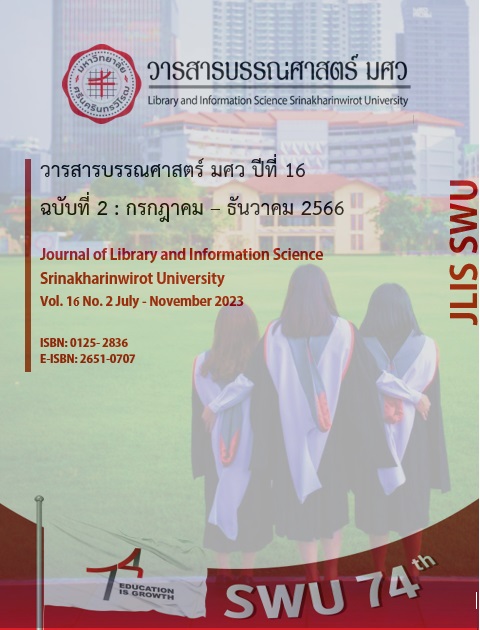Development of Fundamental Physics Laboratory by using Interactive Simulations
Keywords:
PhET, Interactive Simulation, Physics LaboratoryAbstract
This research reported the development of Fundamental Physics Laboratory by using Interactive Simulation. Physics Education Technology (PhET) consists of more than 50 simulations on https://phet.colorado.edu, including Physics, Biology, Chemistry, Earth Science and Mathematics. This article focuses on applying the simulations for the design and record of experiments for teaching Fundamental Physics Laboratory. There are four activities; 1) Motion with acceleration 2) Simple Harmonic Motion 3) Ohm’s law and 4) Electromotive Force and Internal Resistance. The results of this study reveal that the class posttest score was higher and average normalized gain was in medium gain <g> = 0.43. The students who engaged with simulations performed positive responses for using simulations in Physics labs. By using Satisfaction survey questionnaires to survey students’ responses to Interactive simulations, it is evident that the use of simulations can be effective in encouraging students’ learning of Physics concepts. Significantly, most of the students agree with the use of simulations in teaching and learning since it can help them to construct a conceptual understanding of Physics, regarding the visibility and the use of analogy.
References
Baltzis, K.B., & Koukias, K.D. (2009). Using Laboratory Experiments and Circuit Simulation IT Tools in an Undergraduate Course in Analog Electronics. Journal of Science Education and Technology, 18(6), 546-555.
Banda, H.J., & Nzabahimana, J. (2023). The impact of physics education technology (PhET) interactive simulation-based learning on motivation and academic achievement among malawian physics students. Journal of Science Education and Technology, 32(4), 127-141.
Chuaon, S. (2011). Effectiveness of laboratory group investigation model in science classroom. Veridian E-Journal SU, 4(1), 645-651. (In Thai)
Clarkt, T.M., & Chamberlain, J.M. (2014). Use of a PhET interactive simulation in general chemistry laboratory: Models of the hydrogen atom. Journal of Chemical Education, 91(8), 1198-1202.
Jansoon, N., & Rakbamrung, N. (2018). TPACK in chemistry classroom using PhET interactive simulations. Journal of Science and Science Education, 1(1), 109-121. (In Thai)
Ogegbo, A.A., & Ramnarain, U. (2022). Teaching and learning Physics using interactive simulation: A guided inquiry practice. South African Journal of Education, 42(1), 1-9.
Perkins, K., Adama, W., Dubson, M., Finkelstein, N., Reid, S., Wieman, C., & LeMaster, R. (2006). PhET: interactive simulations for teaching and learning physics. The Physics Teacher, 44(18), 18-23.
Phuaphan, N., Kijkuakul, S., & Chanunan, S. (2020). Development of an innovative methods course supporting pre-service science teachers’tecchnological pedagogical and content knowledge: A critical participatory action research. Journal of Education Naresuan University, 24(2), 159-169, (In Thai)
Rehman, N., Zhang, W., Mahmood, A.K., & Alam, F. (2021). Teaching Physics with interactive computer simulation at secondary level. Brazilian Journal of Education, Technology and Society, 14(1), 127-141.
Saiyasit, P., & Suwanno, P. (2021). Assessment of the current state and needs related to development of information and communication technology skills in 21st century learning management for municipal school teachers, The local administrative organization, Yala Province. Journal of Library and Information Science Srinakharinwirot University, 14(2), 24-34. (In Thai)
Thanetweeraphat, A. (2022). Teaching techniques for designing physics learning activities during the COVID-19 pandemic: Analysis of pre-service teachers’ lesson plans. Journal of Education Study, 50(4), 2-13. (In Thai)
Wood, B.K., & Blevins, B.K. (2019). Substituting the practical teaching of physics with simulations for the assessment of practical skills: an experimental study. Physics Education, 54(3), 035004.
Additional Files
Published
Issue
Section
License
Copyright (c) 2023 Faculty of Humanities, Srinakharinwirot University

This work is licensed under a Creative Commons Attribution-NonCommercial-NoDerivatives 4.0 International License.
Copyright Notice
Copyright of articles in the journal of Journal of Library and Information Science Srinakharinwirot University is the author's and the Faculty of Humanities, Srinakharinwirot University. All articles submitted for publication will be assessed by a group of distinguished reviewers. The Faculty of Humanities, Srinakharinwirot University and the editorial board claim no responsibility for the contents or views expressed by the authors of Individual articles. Copying is allowed freely, provided acknowledgement is made thereof, and within the scope of copyright law.



